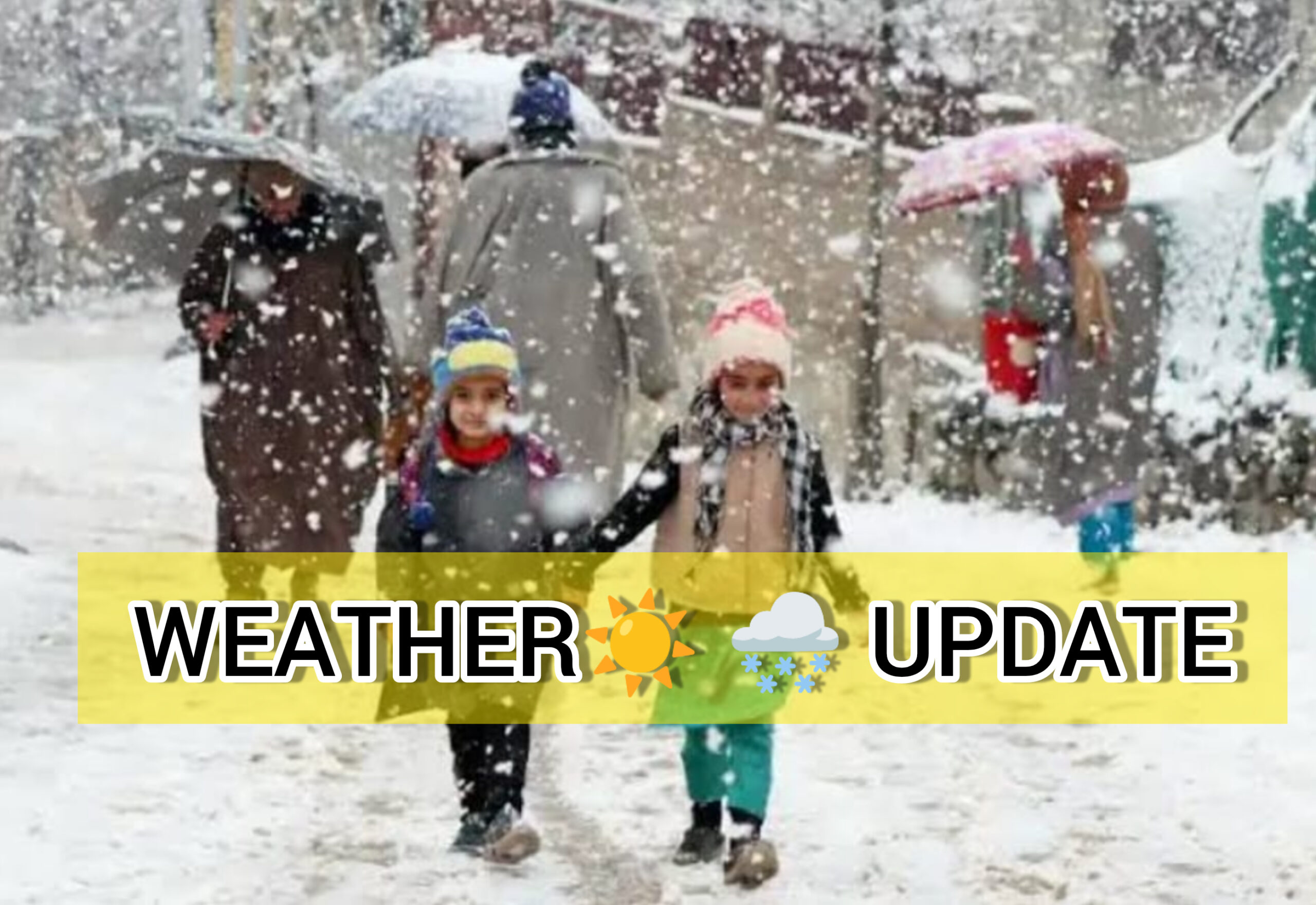Weather Update, Red Alert For Higher reaches of J&K, Check Report

Amid a weather advisory in Kashmir, night temperatures experienced a rise across the valley despite the presence of cloud cover. Pahalgam and Gulmarg recorded temperatures of minus 2.4°C and minus 5.6°C respectively on Wednesday.
According to a meteorological department official, Srinagar recorded a minimum temperature of 4.5°C, which was higher than the previous night’s 1.0°C, albeit still below normal by 0.5°C for this time of the year. Qazigund saw a minimum temperature of 2.0°C, up from 1.2°C the previous night, exceeding the normal temperature by 1.6°C.
Pahalgam registered a low of minus 2.4°C, above the previous night’s minus 1.3°C, and 1.1°C above normal for the area. Kokernag, in south Kashmir, recorded a minimum temperature of 1.1°C, above the previous night’s minus 0.3°C, and above normal by 1.0°C. Kupwara town recorded a low of 1.0°C, compared to 0.4°C the previous night, with temperatures exceeding normal by 1.0°C.
Gulmarg saw a low of minus 5.6°C, slightly higher than the previous night’s minus 6.4°C, and 0.2°C above normal for the skiing resort. In Jammu, the minimum temperature was 8.1°C, below normal by 3.5°C for the winter capital. Banihal recorded a low of 3.6°C, Batote 3.1°C, and Bhaderwah 1.2°C.
The meteorological department issued an advisory cautioning about the potential disruption of surface and air transport in the valley due to an active Western disturbance expected from the evening of the 29th onwards. This system is likely to bring widespread moderate rain/snow from the 29th night/early morning of 01 March till the afternoon of 3rd March, with peak activity on 2nd March.
The advisory highlighted the possibility of heavy to very heavy rain/snow over specific areas and warned of potential disruptions to transportation, including the Jammu-Srinagar highway and major roads in the middle and higher reaches of J&K. People in snow-bound areas were advised to avoid venturing into avalanche-prone areas, and farmers were instructed to withhold all farm operations during the first week of March.
Although the 40-day harsh winter period of ‘Chillai-Kalan’ ended on January 29 and the 20-day ‘Chillai-Khurd’ period ended on February 19, Kashmir is currently in the middle of the 10-day period known as ‘Chillai-Bachha’ (baby cold), which concludes on March 1.





